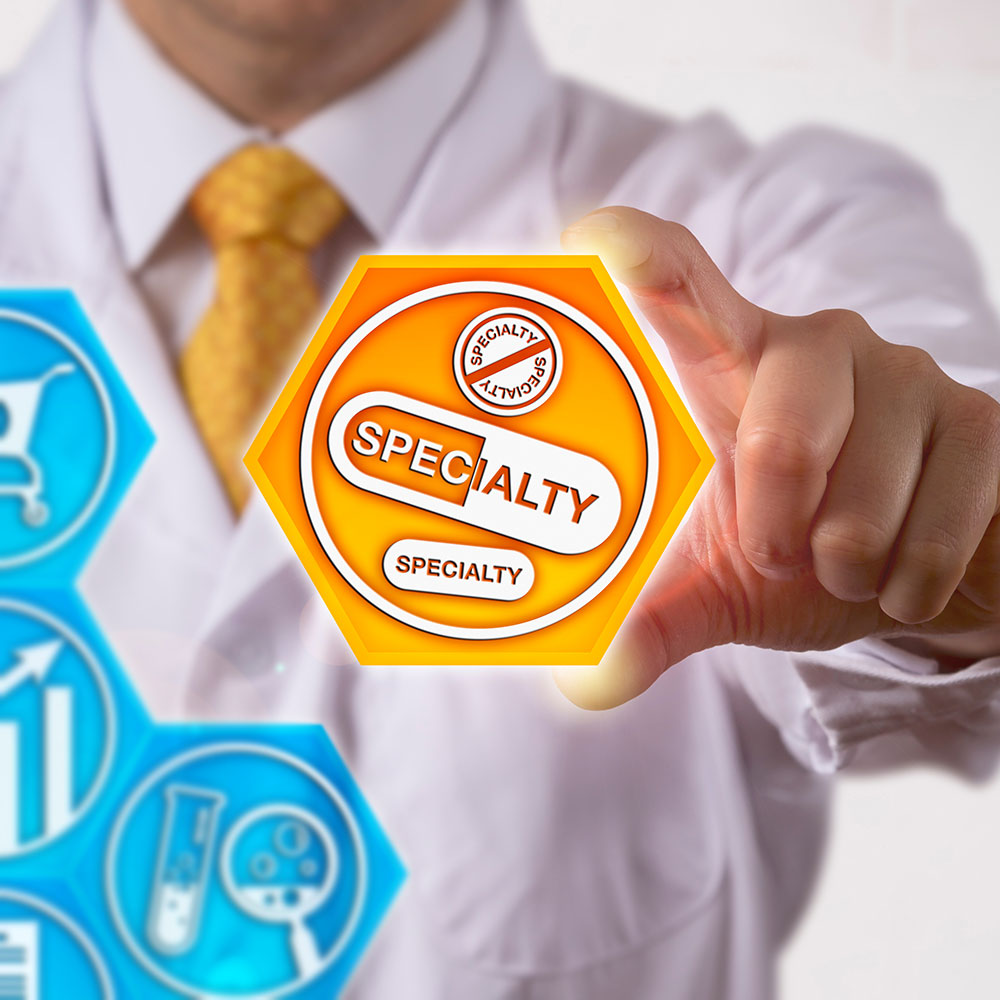Specialty Medications
There’s something that’s really taking off in pharmaceuticals, but maybe not so much for the independent pharmacist. Specialty medications. Specialty medications are a newer designation of pharmaceuticals. They’re classified as high-cost and high complexity. Specialty medications are often drugs that are derived from living cells, and are injectable, infused or oral in delivery.
Specialty medications are often used to treat rare or complex conditions such as:
- Rheumatoid Arthritis
- HIV medications
- Hepatitis C treatments
- Psoriasis
- IBS (inflammatory bowel disease)
- Hemophilia
- Cancer

Why So Special?
Specialty medications are often deemed so for a number of reasons:
- They’re very expensive. Medicare defines any drug with a negotiated price of $670 per month or more as a specialty medication. As a result, specialty medications typically require a higher cost share from the patient.
- Many of them have special handling requirements.
- Some are only available through limited distribution networks.
Specialty medications are also high in cost because the population they’re used for is relatively small. Pharmaceutical companies have invested a lot of money in creating specialty medications, but they’re not used by the general population.
How Do Specialty Drugs Affect the Independent Pharmacy?

